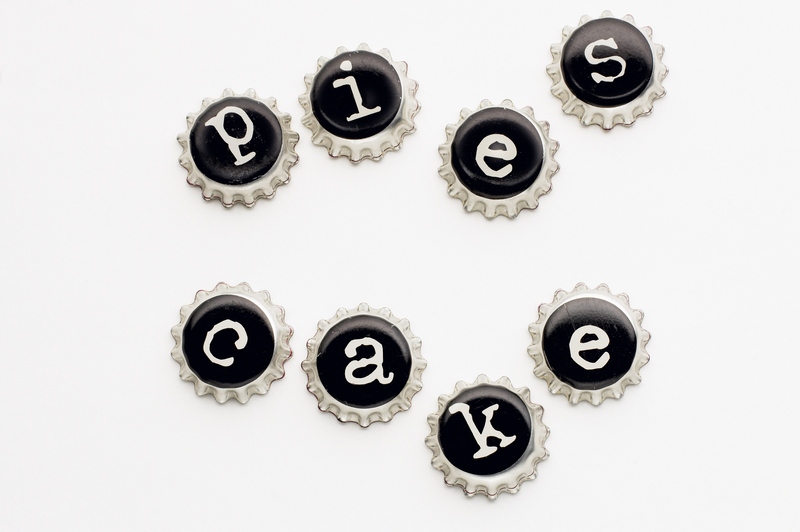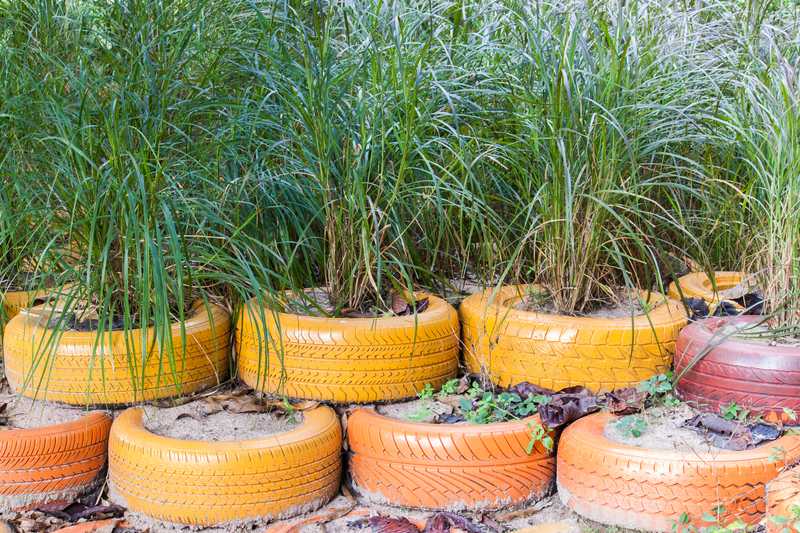Where to Take Old Pots and Pans for Eco-Friendly Disposal
Are you spring cleaning your kitchen or upgrading to a new cookware set? You might be left wondering what to do with those old pots and pans. It's tempting to just toss them in the garbage, but thanks to growing environmental consciousness, there are now far better, more sustainable alternatives! If you're searching for where to take old pots and pans for eco-friendly disposal, you're already making a responsible and green decision. In this guide, we'll cover a wealth of options for disposing of old cookware in ways that don't harm the planet, as well as tips for reusing and donating. Let's dive in and discover how you can give your kitchenware a second life!

Why Eco-Friendly Disposal of Old Pots and Pans Matters
Every year, tons of cookware--made from materials like metal, ceramic, glass, and non-stick coatings--wind up in the landfill. This not only wastes valuable resources but can also introduce toxic substances into the environment as coatings break down or metals corrode. Eco-friendly disposal helps conserve resources, reduces pollution, and supports a more sustainable lifestyle. That's why knowing where to take old pots and pans is crucial for everyone striving to make a positive environmental impact.
First Step: Assess the Condition of Your Cookware
Before disposing of any item, take a moment to assess its condition. Is it still usable? Does it have life left in it? If so, the most sustainable option is reuse--either by yourself or by passing it on to others. Here's a quick guide:
- Still functional: Consider donating or selling.
- Damaged/nonstick coating peeling: Must be recycled or disposed of safely.
Eco-Friendly Disposal Options for Old Pots and Pans
1. Recycling Metal Cookware
Metal pots and pans--whether stainless steel, aluminum, or copper--are usually recyclable. However, not all curbside recycling programs accept them due to their weight and shape. Here's how to recycle old pots and pans responsibly:
- Contact Your Local Scrap Metal Yard: Most local scrap yards are happy to take old metal cookware. Make sure you remove any plastic handles or lids.
- Check Municipal Recycling Centers: Some town or city-operated recycling centers have special bins for scrap metal.
- Retail Take-Back Programs: Certain retailers, especially those specializing in kitchenware, offer take-back or recycling events (see below for details).
Note: Nonstick pans (like Teflon-coated ones) require special handling. Many recycle centers do not accept them with coatings attached because the chemical coatings can contaminate the recycling process.
2. How to Dispose of Teflon or Nonstick Pans
Teflon and other nonstick pans are trickier due to their coatings:
- Check Local Waste Protocols: Some communities treat coated pans as household hazardous waste. Call your waste management service.
- Remove Handles & Separate Materials: If possible, remove plastic or rubber handles. Some scrap yards take the metal body if freed from other materials.
- Mail-in Programs: A few specialty companies accept nonstick cookware for recycling by mail. Search online for "mail-in pan recycling" for the latest services.
3. Donating Usable Pots and Pans
If your cookware is still in decent condition (even with cosmetic wear and scratches), donation is a fantastic eco-friendly alternative. Here's where you can donate old pots and pans:
- Charity Thrift Stores: Goodwill, Salvation Army, Habitat ReStores, and local non-profits often accept gently used cookware.
- Homeless or Domestic Violence Shelters: Many shelters need supplies for their kitchens or to give to clients starting out on their own.
- Community Centers and Soup Kitchens: These organizations may welcome donations for meal programs.
- Online Community Sharing Platforms: Post items on Freecycle, Nextdoor, Facebook Marketplace, or Buy Nothing groups for others to collect.
4. Upcycling and Repurposing Old Cookware
If your pans aren't fit for cooking, get creative! Upcycling extends their life and keeps them out of the waste stream:
- Planters: Drill a drainage hole and use a pot as a rustic outdoor planter.
- Storage Organizers: Deep pots can organize garden tools, art supplies, or kitchen utensils.
- Craft Projects: Skillets become clocks, wall decor, or even bird baths with a little DIY flair.
- Serving Dishes: Line an old pan with parchment for a quirky serving bowl at picnics.
Pro-tip: Upcycling is especially fun with children or as a community art project!
5. Manufacturer or Retailer Take-Back Initiatives
Increasingly, cookware brands and retailers are introducing take-back recycling programs. Here are a few options:
- Le Creuset: Sometimes offers drop-off or mail-in recycling for their pots and pans.
- GreenPan: Has periodically hosted pan recycling events via partnered shops.
- Sur La Table and Williams Sonoma: Host "Trade-In" recycling events for old cookware -- check for upcoming dates.
- Local Hardware Stores: Some participate in recycling programs--ask customer service.
Always check the latest details on their websites or contact directly to confirm program availability and requirements.
What NOT to Do With Old Pots and Pans
Please avoid the following un-eco-friendly options:
- Do NOT put them in standard curbside recycling bins unless your program specifically allows cookware.
- Do NOT dump in public land or parks; illegal dumping carries fines and environmental harm.
- Do NOT incinerate cookware to avoid releasing dangerous fumes from coatings and metals.
Frequently Asked Questions About Eco-Friendly Disposal
Can I Put Old Pots and Pans in the Blue Recycling Bin?
*Usually, no.* Most curbside recycling does not accept pots and pans, especially those with nonstick coatings. Local scrap metal facilities are a better option.
Can Nonstick Pans Be Recycled?
Not in most standard recycling programs, because Teflon and similar coatings are contaminants. Some specialty recyclers do accept them after you remove non-metal parts. Always check first.
What if I Live in an Apartment With No Car?
Many donation and recycling programs offer pick-up services, especially for larger appliances or batch donations. Alternatively, online community groups are a low-hassle way to pass items along.
How Can I Upcycle Old Pots and Pans if I'm Not Crafty?
Even simple reuses can extend their life! For example, use them as under-the-bed storage, plant saucers, or drop-off at local makerspaces or art schools that might use them in creative projects.
Finding Local Pot and Pan Disposal Resources
Each town or city differs in its recycling infrastructure. Here's how to find where to take old pots and pans near you:
- Municipal Websites: Visit your local government's recycling/waste page and search for "scrap metal" or "household hazardous waste."
- Earth911: This site lets you enter your zip code and item type to find local recycling locations.
- Call2Recycle: While focused on batteries, some participating retailers take small appliances and cookware.
- Local Scrap Metal Yards: Find via Google Maps or Yelp by searching for "scrap metal recycling."
- Community Swap Days: Watch for periodic community recycling events, which often accept household goods.
How to Prepare Pots and Pans for Recycling or Donation
- Clean Thoroughly: Remove any food residue or oil.
- Remove Plastic/Rubber Parts: If possible, separate plastic handles/lids, as they're not always recyclable with metal.
- Bundle Items if Required: Some facilities require you to tie or group similar metals together.
- Check for Brand-Specific Rules: When participating in a take-back program, always follow instructions on labeling and packing.
The Environmental Benefits of Eco-Friendly Cookware Disposal
Making the effort to find out where to eco-dispose of old pots and pans isn't just about decluttering your kitchen. By recycling or donating, you're:
- Reducing landfill waste: Metals and ceramics can last indefinitely in a landfill, wasting space and leaching chemicals.
- Saving energy: Recycling metals uses far less energy than mining new resources.
- Supporting people in need: Donated cookware can be a lifeline for someone starting over or in crisis.
- Encouraging circular economy: Upcycling and recycling keep material resources in productive use longer.

Alternatives to Traditional Pots and Pans
Once you've made space in your cupboards, consider these eco-friendly alternatives when buying new cookware:
- Cast Iron: Durable for generations and 100% recyclable at end-of-life.
- Uncoated Stainless Steel: Easy to recycle, long lifespan.
- Enamel-Coated Iron: No chemical coatings, easily recyclable iron core.
- Bamboo Utensils: For non-cookware kitchen needs, bamboo is renewable and compostable.
Pro-tip: Invest in quality and timeless designs to reduce how often you need to replace kitchenware!
Conclusion: Make Eco-Friendly Disposal Your Kitchen Habit!
When it comes to where to take old pots and pans for eco-friendly disposal, the choices are varied and accessible for most people--scrap metal recycling, donations, upcycling, and special retailer programs all play a role. By taking a moment to reuse, donate, or recycle, you keep valuable materials out of landfills, support sustainability, and can even help those in need. Make eco-friendly disposal a regular kitchen habit--your home and the planet will thank you!
Ready to start? Check your local recycling resources, pass along still-good kitchenware, and share this guide with other eco-conscious cooks you know. Together, we can make product lifecycles greener--one old pot or pan at a time!
